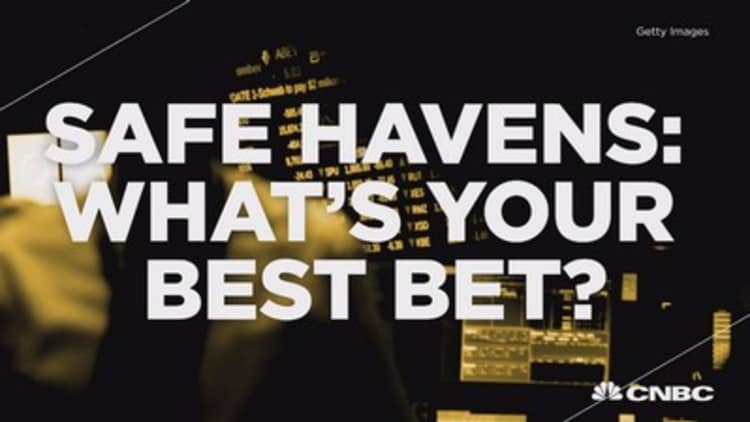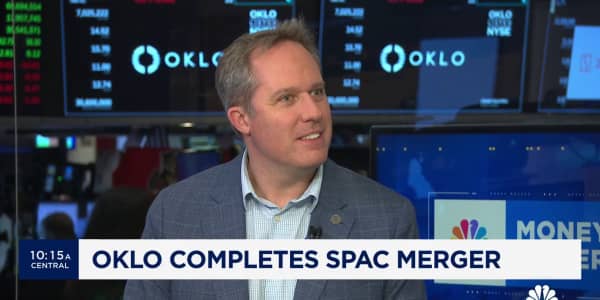
The Federal Reserve is scared—of lots of things, some obvious, some not so much.
Thursday's Fed decision to delay yet again the long-awaited liftoff from zero rates gave rise to still more speculation about why the U.S. central bank seems so perpetually reticent to normalize monetary policy.
There are all the usual suspects, such as low inflation, weak wage gains despite strong job growth and China plus the rest of the emerging global economy.
One reason that hasn't gotten much attention is the need for the Fed to keep rates low both for government debt and the corporations that now have $12.5 trillion in debt.
Among the prime beneficiaries of zero interest rates have been low-rated companies that have been able to borrow money at rates often in the 5 to 6 percent range.
A move to higher rates, even a small one, could have outsized impacts on those bad balance sheet companies.That puts the Fed in a bit of a Faustian bargain with issuers and holders that has become hard to break.
Not only has high-yield issuance exploded in the days of the central bank's ultra-easy accommodation, but the bottom of the ladder has gotten more crowded as well.
Read More This list of 'junk' companies keeps getting longer
About a quarter of all debt issued now in the junk universe is held by companies rated B3 or lower, according to Moody's. Credit standards have continued to loosen as well, with the ratings agency reporting that its covenant quality index—essentially a read on how strict the conditions are on corporate borrowers—is at record lows.
"Businesses as a whole in the U.S. are better placed now to absorb any shocks that might hit them," Bodhi Ganguli, senior economist at Dun & Bradstreet, said in a phone interview. "However, there are pockets of greater weakness like these zombie companies. These pockets are likely to see some more turbulence than overall conditions. Some companies definitely will go out of business."
It isn't just the zombies, though, that should worry about higher rates.
Corporate America overall has been piling on the debt, which grew 8.3 percent in the second quarter, according to figures the Fed released Friday.
Read MoreThe junk bond market 'is having a coronary'
Though total issuance has declined to its lowest level in three years, it's been a year for big deals in the junk market, with the average high-yield deal globally at a record $587 million, according to Dealogic.
Investors are taking notice to the problems in the junk market and the added issues from wobbly monetary policy.
Michael Contopoulos, high-yield strategist at Bank of America Merrill Lynch, said the high-yield space is a mess no matter what the Fed does. Global economic weakness and deteriorating fundamentals are making it increasingly harder for the Fed to underwrite junk debt through a zero funds rate.
"We have been saying for months that the global economy is weak and the Fed's dovish disposition (Thursday) only bolsters our view," Contopoulos said in a note to clients. "Domestically it becomes harder to argue that a strong dollar and the lack of inflation can be viewed as transitory, and this headwind is continuing to hurt high-yield corporates."
Earnings for junk companies have been "incredibly weak," he added, pointing out that "leverage is at all-time highs" while "defaults and downgrades are creeping into the market."
Read More Market fear rises after Fed non-move
Fed Chair Janet Yellen often uses the word "transitory" to describe various hot spots of problems, but the issues with high-yield could be more secular in nature.
"The situation almost seems unbelievable, as everything that seems to go wrong is explained as being isolated ... and treated as a surprise," Contopoulos said.
Junk bonds as a group haven't done much this year despite their traditional correlation to equity markets, with the Barclays High Yield Corporate Composite Index up less than 1 percent, though it's fallen more than 3 percent over the past three months.
The SPDR Barclays High Yield Bond exchange-traded fund has seen $436 million in inflows for 2015, but that has reversed lately. The fund has seen $211 million in outflows since the beginning of August, according to ETF.com.
Contopoulos warned investors that the Fed's indecision will have consequences and to not "try to be a hero" by continuing the reach for yield.
"The Fed had an opportunity (Thursday) to hike rates and begin to build a cushion should the global slowdown be so severe it can't be ignored. Instead, they chose to wait," he said. "We're in the midst of watching a slow-moving train wreck, and in our view the Fed confirmed as much."






